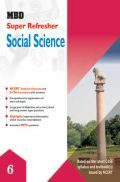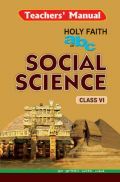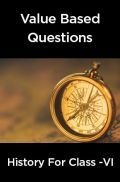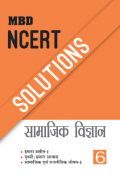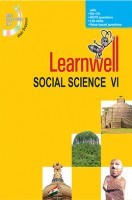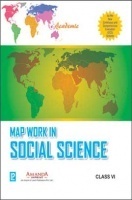This series of Sccial Science books for classes VI. VII and VIIl is written as per the NCERT syllabus. These books atlempt to promote the understanding of history, geography and civics among the students. The series tries tosatiate the curiosity of the students,
The tools and techniques used for assessment, based on CCE, are interesting, relevant and meaningful and involve students for greater participation in studying. The series provides various chapter-related questions under different types of Assessments and topic wise activities/project work. based on CCE Scheme.
History section introduces the students to historical development from pre-historic era to present day. The chapters are arranged in a chronological order. This section includes events corroborated by inscriptions, aceounts by foreign travellers, court historians pictures, maps and records obtained from the archives. The special features are case studies for in-depth learning, timeline charts, historical maps ‘o locate places and routes taken by the voyagers, explorers and traders. Illustrations and photograph; of various events, rulers and buildings are a ysual treat to the studerts.
Geography section familiarises the students not only with thegeography of the country but also with the environment. It inculeates a posit-ve attitude and sensitivity in students towards the environ- ment. This section includes maps, thematic pictures, diagrams, data, etc.
Civics section introduces the students to political and social institutions of the country - The type of government, the ideals of the country, how the government i: formed and people responsible for it. The aim is to help students understand the meaning of diversity and constitutional values of the country. This section also contains illus:rations and flow diagrams.
This book Useful for Class VI Students.
1. What, Wrere, How and When
2. The Earliest Societies: On the trail o' the Earliest People
3. The First armers and Herders (Fron Gathering to Growing Food)
4. The First Earliest Cities
5. Different Ways of Life (What Books end Burials tell us)
6. Kingdoms Kings and an Early Republic
7. Rise of New Questions and Ideas
8. The First Empire: Ashoka, The Emperor Who Gave up war
9. Vital Villages, Thriving Towns
10. Contacts with Distant Lands: Traders, Kings and Pilgrims
11. Political Development: New Empires and Kingdoms
12. Culture and Science: Buildings, Paintings and Books
13. The Solar System and the Earth
14. Globe, Laitudes and Longitudes
15. Maps
16. Motions of the Earth
17. Realms of the Earth
18. Continents, Oceans and Associated Landforms
19. India: Location, Size and Relief
20. India: Climate, Vegetation and Wildlife
21. Meaning of Diversity
22. iversity, Prejudice, Stereotypes and Discrimination
23. What is Government?
24. Key Elements of the Democratic Government
25. Panchayaii Raj in India
26. District Administration
27. Urban Administration
28. Rural Livelihoods
29. Urban Livelihoods







